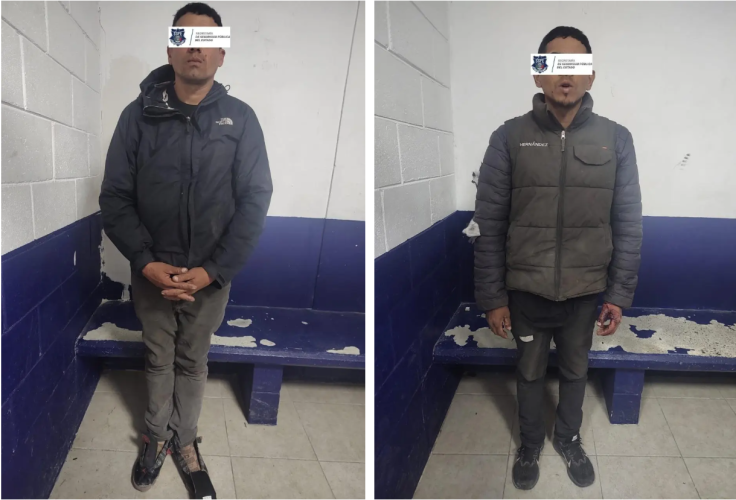
A Venezuelan national accused in the December 30 murder of Mexican immigration agent Luis Alberto Olivas García has been identified as a possible member of the "Tren de Aragua", a notorious Venezuelan gang by Chihuahua Public Safety Director Gilberto Loya, according to a tape-recorded interview shared with Border Report.
"One of them has the tattoos that we have identified as probably linked to Tren de Aragua" said Loya. "We have shared this information with other agencies and are waiting for the next binational meeting to have it checked in (American) databases."
The tattoo in question, which shows the face of an owl, had already been made public through X by investigative journalist Luis Chaparro back in January 1. Chaparro had also made the connection between the image and the gang as he explained that the owl is "a symbol often found on Tren de Aragua members."
One of the alleged killers had an owl tattoo on his arm, a symbol often found on Tren de Aragua members. https://t.co/NU9ZIKmYkS pic.twitter.com/FrdNZDZccs
— Luis Chaparro (@LuisKuryaki) January 1, 2025
Border Report also explained that officer Loya has been alerting the public to the presence of the Venezuelan gang in northern Mexico for months and quotes him as saying the transnational criminal organization is increasingly coaching migrants to disobey Mexican authorities as they travel to the border. He also said Tren de Aragua infiltrated a migrant camp in Chihuahua City earlier this year.
The Tren de Aragua gang, originated in Venezuelan prisons, has expanded its operations across Latin America and now the United States, engaging in human trafficking, drug smuggling, and organized crime.
"Tren de Aragua's adaptability and connections with other cartels and criminal networks increase the likelihood of their involvement in cross-border crime," explained global security expert Ricoh Danielson to The Latin Times. "Additionally, the gang's violent methods and ability to exploit political instability make them a destabilizing force that could exacerbate issues at the southern border, contribute to the opioid crisis, and escalate gang violence in U.S. cities."
Because of the gang's innate adaptability, Danielson believes authorities in the U.S. have had to face unique challenges when it comes to dealing with the Tren de Aragua. Nevertheless, he believes "a hybrid strategy focusing on international pressure, intelligence gathering, and targeted operations may prove more effective." Furthermore, he also believes "expanding collaboration with Latin American governments and investing in community-driven solutions domestically will provide a more sustainable and comprehensive approach to combating the Tren de Aragua threat."
© 2024 Latin Times. All rights reserved. Do not reproduce without permission.










